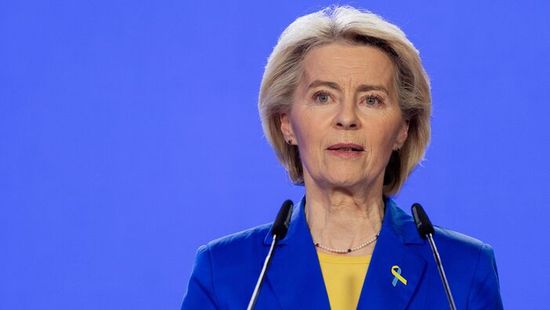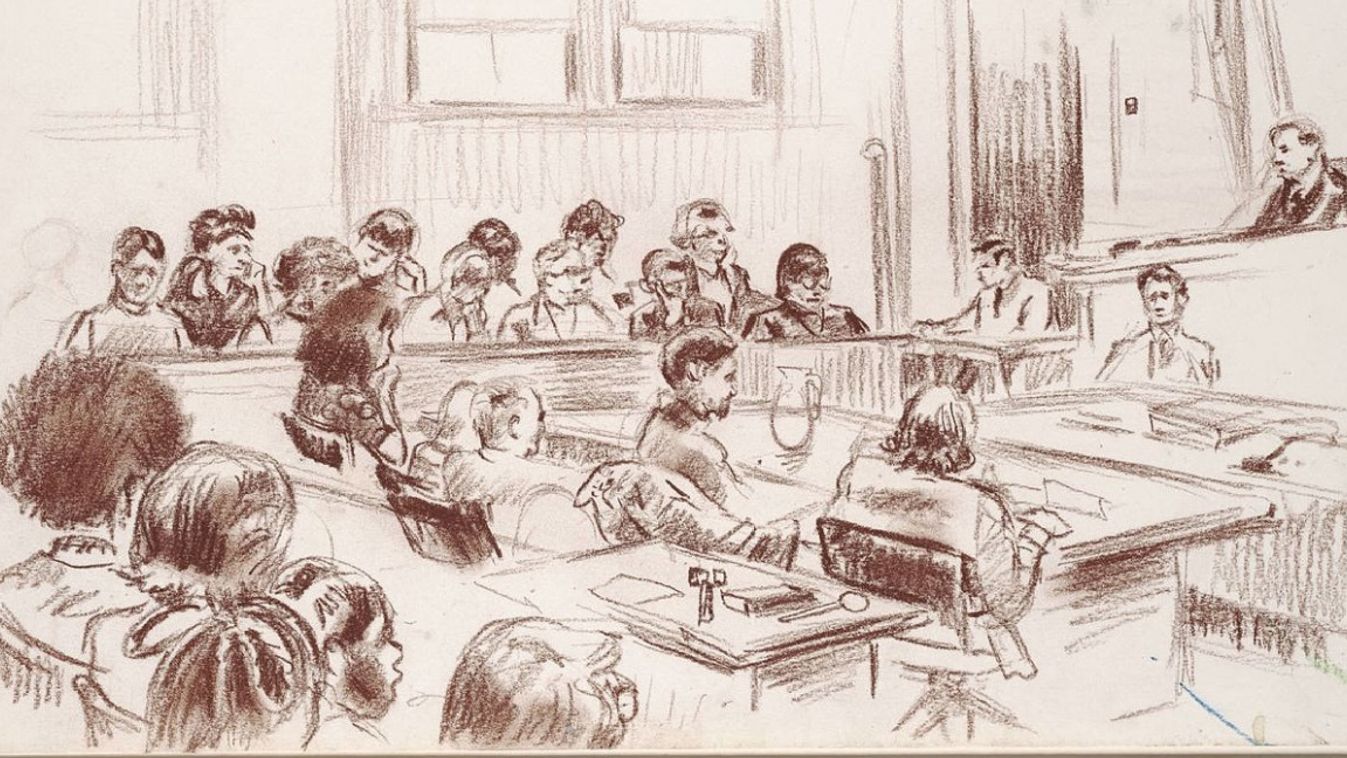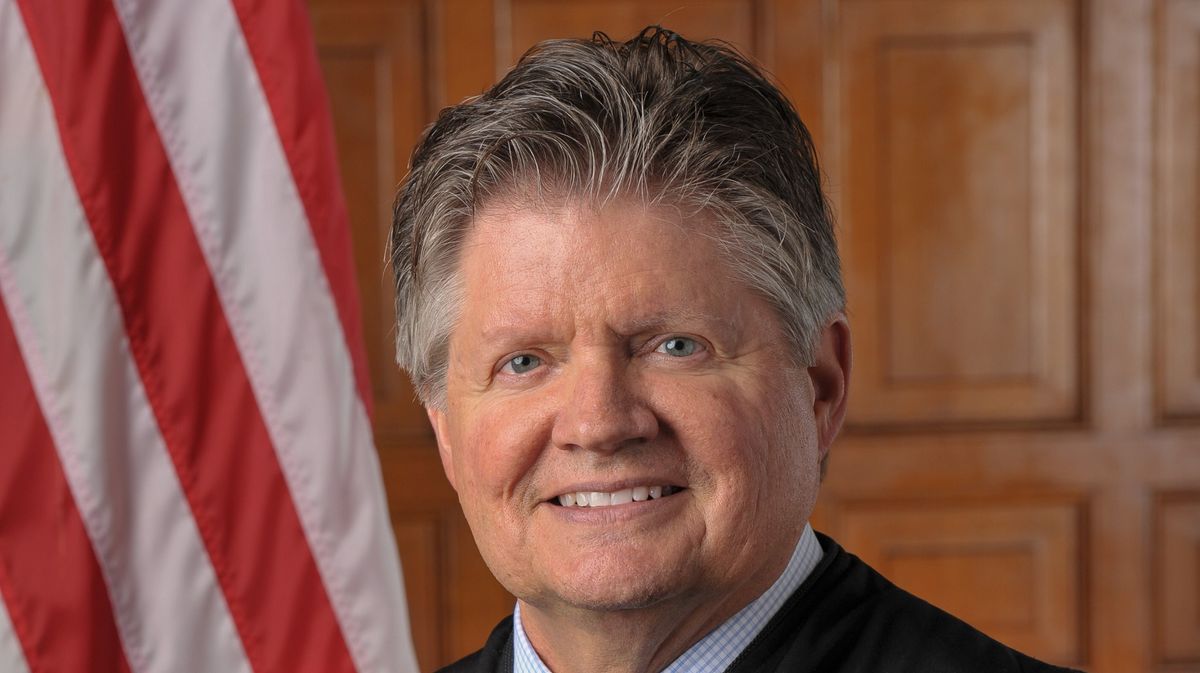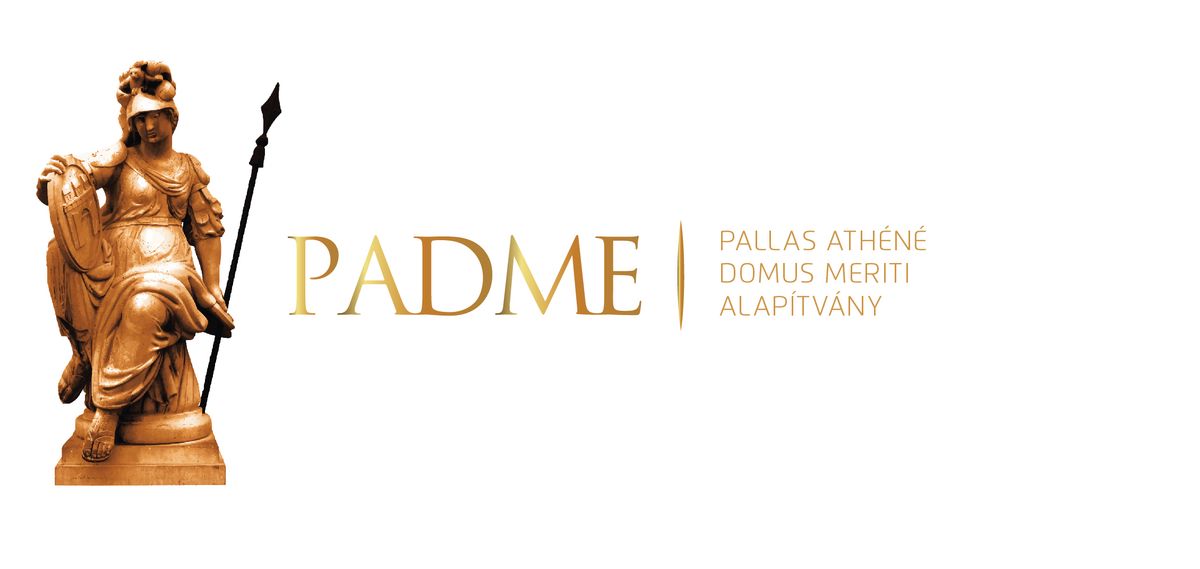Orbán móresre tanította Von der Leyent: megmutatta neki, mire képesek a magyarok (VIDEÓ)

„A szuvereintás jobb üzlet” – jelentette ki a Nézőpont Intézet vezetője.

“We will get through these challenges and we will have learned new, more effective and efficient ways of working. That is the silver lining of the innovations that have been forced on us by the coronavirus pandemic” – pointed out by Chief Judge John R. Tunheim in a conversation with Lénárd Sándor, researcher at the National University of Public Service.



The coronavirus pandemic has upended everyday life, paralyzed the economy, and divided people one from another. The virus also has its own impacts on the proper functioning of government institutions, including the judiciary. You have been serving as the Chief United States District Judge of the United States District Court for the District of Minnesota. What major challenges are the federal judiciary confronted with throughout the US?
The federal judiciary has faced many challenges resulting from the pandemic and there seem to be more each day. Our biggest challenge has been how to proceed with criminal cases. For now, we cannot conduct jury trials, so such trials are suspended at least until mid-summer. The bigger challenge, however, has been to effectively handle criminal hearings without unnecessarily requiring parties to come to our courtrooms. We have many pretrial matters, guilty pleas, and sentencings that require hearings before our judges. There are constitutional rights and time limits that must be observed. We do not want to face a huge backlog when we get back into action.
How are courts able to continue their operations?
During the emergency that has been declared by the President, federal judges were given temporary authority to handle criminal matters, except trials, through video conference. Normally, video hearings are not allowed, but such procedures are permitted during this period if the defendant consents. Therefore, we have set up our Government Zoom account so it can provide us with the ability to hold all our criminal hearings by video conference. Setting up the mechanics of these hearings has been a big challenge.
Do you have the same challenge in civil cases as well?
The civil cases are easier as we have always been able to handle civil matters by video or audio conference and we are continuing to do that. But we cannot yet handle civil jury trials until it is safe to summon jurors to our courthouses. The criminal proceedings have posed the biggest challenge for us.
How are you able to guarantee the timeliness of these criminal procedures if jury trials had to be put on hold?
This is a very serious issue. We have the “Speedy Trial Act” in the United States which generally requires trials to occur within 70 days from the date of the indictment. During the emergency, because of the unavailability of grand juries and the inability to promptly hold conferences and hearings, I have excluded this delay time from counting against speedy trial requirements. As Chief Judge, I have statutory authority to suspend these rules in an emergency, and this is the kind of emergency that allows us to do that. But we are trying to proceed with our cases as much as we can using video conference, except for trials. This way can move the process along, avoid later backlogs, and help guarantee the rights of defendants.
Speaking of criminal proceedings, the constitutional tradition of the US has long recognized the right to counsel and the right to consult with a lawyer. This is also a precondition to move the proceeding along. How can courts facilitate the enjoyment of this guarantee under these circumstances?
This is a very important point. There was a real roadblock for us initially because many of our criminal defendants in pending criminal cases are being detained. They are at a local detention facility which locked their doors to the outside to prevent the virus from infecting the people there. We appreciate what they have done very much as there are yet no cases of coronavirus infection at our detention facilities. However, making sure that lawyers can fully consult with their clients was a challenge. To meet this challenge, we set up rooms at the detention facilities with iPads. Defendants are scheduled for those rooms and they can confer directly to their attorneys through the iPads without anyone listening. This allows us to move their cases along. It took us about a month to get that organized just to make sure that we had sufficient video conference technology, sufficient bandwidth, iPads, rooms, and also guards ready to bring detainees to the room. It has been a real set of challenges. We have finally reached the point where those meetings can be effectively conducted and that has enabled us to start scheduling the criminal hearings. Normally, lawyers meet in person with their clients in the detention facilities. That cannot be done during a lockdown and our solution has overcome this challenge.
It is indeed quite impressive. But let’s take a look at the other side of the coin. As you mentioned, the operations of juries, including grand juries are now being put on hold. Another constitutional provision, however, envisions that some criminal charges can only be brought by the decision of a grand jury. How can communities be defended against criminals if no grand jury is able to continue its operation?
We are planning to bring back a grand jury previously scheduled on May 14 to hear evidence and to vote on indictments. We think that we can do that with grand jurors in separate courtrooms, socially distanced, and hearing witnesses and arguments from the prosecutors and law enforcement agents by video conference. We are hoping that this will work. We cannot wait for a long time for individuals accused of crimes to be charged. It is true that in an emergency a person can be charged by a federal prosecutor by complaint. That is what happens when a person, for example is arrested for a bank robbery and must be charged and detained immediately before a grand jury can meet. The rules require that a grand jury hear the basis for an indictment and vote on an indictment within thirty days of a complaint being issued. On behalf of my court, I extended that thirty-day deadline during this emergency so that people charged with complaint can wait longer for the indictment. But this cannot last for very long. The Constitution does require that all felonies be charged by a grand jury unless the defendant waives the right to have the grand jury hear evidence and vote on whether to return an indictment. The grand jurors understand their important role in our criminal justice system and the need to meet to consider indictments. We will take all possible precautions to make sure that they can socially distance themselves and are kept safe.
Did a similar situation occur before?
Not in our district, but some districts that have experienced natural disasters likely have had to experiment. We must be innovative in these times. Hopefully, if we do something wrong, the appellate courts will be understanding and forgiving.
Beyond its dispute resolution role, the US Constitution grants the federal judiciary with the power to carry out judicial review that serves as a crucial part of the system of “checks and balances”. Accordingly, it must make sure that the regulations of the two other branches are in line with the Constitution. How can the federal judiciary preserve its constitutional role under these exceptional circumstances?
All our federal courts are working. We have not shut down any of the federal courts. We have suspended certain kinds of proceedings, like the jury trials. But even during a pandemic, if the emergency lasts much longer, we will need to conduct trials using citizen juries. We simply cannot put off jury trials for a long period of time. So that puts pressure on us to find ways to conduct trials safely with appropriate social distancing and cleaning. Social distancing rules will likely be with us until there an effective vaccine is widely available. So, we need to be ready to do jury trials. But as far as the appellate courts are concerned, it is relatively easy for them to proceed. Lawyers will file their briefs and make arguments by video conference from their offices and then appellate courts can issue decisions. Without the need for witnesses and juries, the process can be much simpler. The U.S. Supreme Court is proceeding in that manner and even allowing the public to listen to streaming of the audio of the arguments that take place. We are also allowing the public to participate by listening to audio feeds of our hearings at the District Court. We are proceeding with nearly all of our work, albeit somewhat more slowly, and what we cannot do, we are trying to find solutions to the challenges posed by the pandemic.
Last but not least, how in your view are justices, judges and staff prepared for such an emergency mentally and emotionally?
This is a very good question. As a court, our judges are talking frequently and sharing our best practices. We are doing “zoom calls” now so that we can see each other, chat, and give each other ideas on how we can proceed better. I am doing twice weekly zoom calls with my staff. My law clerks are working from home and the rest of my staff are here only part time and doing the rest of their work by telework. I think for the time being we are doing well. We had a plan in place for extensive teleworking if there was an emergency. We were thinking that might be a tornado or snowstorm or flood, but we were prepared for a pandemic as well. Some districts have dealt in the past with hurricanes, but that is not a problem in Minnesota. Our continuity of operations plan has worked quite well. Although staff are worried about getting sick, they are thankful for the ability to work from home and do their tasks from there. I think staff and judges at this point are doing well. We communicate often and offer call-in time each week. If the emergency lasts for a long time, I know that all our judges and staff will miss having people in their courtrooms. The functionality of video conferencing, the ability to see people, hear arguments and check in frequently has been really helpful. We will get through these challenges and we will have learned new, more effective and efficient ways of working. That is the silver lining of the innovations that have been forced on us by the coronavirus pandemic.
***
A cikk a Pallas Athéné Domeus Educationis Alapítvány támogatásával valósult meg.
